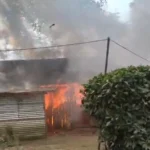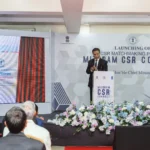The United States has issued a stark warning to its citizens, cautioning them about an “imminent” extremist threat in Moscow. This alert has sent shockwaves through diplomatic circles and heightened concerns about the safety and security of both US nationals and residents in the Russian capital.
The advisory, issued by the US Embassy in Moscow, urges American citizens to exercise vigilance and take appropriate precautions in light of the heightened threat environment. Specific details about the nature of the threat have not been disclosed, but the warning underscores the seriousness of the situation and the need for heightened awareness.
The US warning comes amidst a backdrop of rising tensions between Russia and the West, fueled by geopolitical rivalries, territorial disputes, and allegations of cyber warfare and interference in democratic processes. Against this backdrop, the prospect of an extremist attack in Moscow raises fears of further destabilization and conflict in the region.
The timing of the warning is also significant, coming just weeks after Russia invaded Ukraine, which has sparked condemnation from the international community and led to widespread fears of a broader conflict in Eastern Europe. The US warning is likely to further exacerbate tensions between Washington and Moscow and could impact diplomatic relations between the two countries.
In response to the US advisory, Russian authorities have reportedly implemented heightened security measures in Moscow, including increased police presence and surveillance in key areas of the city. These measures are aimed at deterring potential attackers and reassuring the public about their safety in the face of the perceived threat.
The US warning has prompted reactions from other countries as well, with several Western nations, including the United Kingdom and Canada, issuing similar advisories to their citizens traveling to or residing in Moscow. These advisories highlight the international concern about the security situation in the Russian capital and underscore the need for coordinated efforts to address the threat.
The prospect of an extremist attack in Moscow raises questions about the underlying factors contributing to the threat and the potential motivations of the perpetrators. While details about the specific nature of the threat remain unclear, analysts point to various possible scenarios, including retaliatory actions by extremist groups in response to recent geopolitical developments or the escalation of existing tensions between Russia and the West.
The US warning also raises broader questions about the effectiveness of security measures in preventing extremist attacks and the challenges of combating terrorism in an increasingly interconnected and volatile world. Despite extensive efforts by governments and law enforcement agencies to disrupt extremist networks and thwart attacks, the threat of terrorism persists, underscoring the need for continued vigilance and cooperation among nations.
In the face of the heightened threat environment in Moscow, individuals need to remain vigilant and heed the advice of authorities regarding personal safety and security. This includes avoiding crowded or high-risk areas, staying informed about developments in the security situation, and reporting any suspicious activities to the authorities.
At the same time, efforts to address the root causes of extremism and promote dialogue and reconciliation are crucial in addressing the underlying grievances that fuel radicalization and violence. By addressing social, economic, and political factors that contribute to extremism, countries can work towards building more resilient and inclusive societies that are better equipped to withstand the threat of terrorism.
The US alert regarding an “imminent” extremist threat in Moscow emphasizes the necessity for increased vigilance and collaboration among nations in confronting the menace of terrorism. While the specific details of the threat remain unclear, the advisory serves as a reminder of the ongoing challenges posed by extremism and the importance of proactive measures to prevent attacks and safeguard public safety.









